Archive for October, 2013
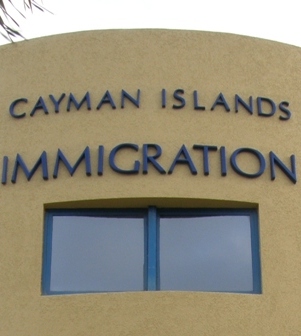
Immigration bill passes
 (CNS): Despite concerns and opposition to the legislation, the government has successfully steered its controversial immigration amendment bill through the Legislative Assembly following a 14 hour session that lasted from noon Wednesday to the early morning hours of Thursday. Shortly after 2am, legislators voted in favour of the bill. However, government lost votes from its own benches when Employment Minister Tara Rivers failed to show up to the parliament at all, sending word that she was unwell and unable to attend the critical debate. And veteran PPM backbencher Anthony Eden joined the opposition benches and voted ‘no’ to the government’s change due to his concern that more than 1,500 exemption permit holders will remain on island, entitling them to apply for residency.
(CNS): Despite concerns and opposition to the legislation, the government has successfully steered its controversial immigration amendment bill through the Legislative Assembly following a 14 hour session that lasted from noon Wednesday to the early morning hours of Thursday. Shortly after 2am, legislators voted in favour of the bill. However, government lost votes from its own benches when Employment Minister Tara Rivers failed to show up to the parliament at all, sending word that she was unwell and unable to attend the critical debate. And veteran PPM backbencher Anthony Eden joined the opposition benches and voted ‘no’ to the government’s change due to his concern that more than 1,500 exemption permit holders will remain on island, entitling them to apply for residency.
Prior to the premier’s presentation of the bill and ahead of the long debate, a petition was presented to parliament with more than 800 signatures by Ezzard Miller, the independent member for North Side. The petition is now a public document and is understood to have a significant portion of names from West Bay, even though the government’s public meeting there had changed the minds of many in the district where much of the opposition to the law had first emerged.
Acknowledging the opposition and controversies surrounding the amended legislation and the haste with which it was being brought, Premier Alden McLaughlin was still not persuaded to make many significant changes to the legislation.
He noted that the term limit had already been dropped from ten years to nine and that an amendment to the draft legislation would be made to preserve caregiver certificates to those who already had them. He said that much of the opposition had been generated because he had not done a good job at delivering the message about the changes in the first instance but considerable efforts in the last few weeks and won more support.
“Government understand that there are still those that have different views and the petition is an indication,” he said “We know that there was a march, then a demonstration of sorts at the weekend … Although the numbers are not great, there are people who are not comfortable and to those I say government takes your concerns on board," he said.
“We understand that there are real concerns about the state of the economy and unemployment and they colour views about this as they think this will make life easier to employ foreigners. We take the other view. We think it is going to make it more likely that Caymanians will be employed,” McLaughlin told the House, adding that the law introduced severe consequences for those trying to defraud the system.
More than a dozen amendments to the law presented by Miller were all ignored. These included a proposal to make business staffing plans public, force government to also follow the same immigrations regime and changing the tag from work permit holder to guest worker.
However, government has committed to addressing some of the issues raised by the North Side member, including removing government’s exemption from the work permit regime and limits for expatriate employees.
As he opened the debate, the premier reminded members that the Progressives had campaigned in the run-up to elections on a platform that included a revision of immigration legislation. This was specifically to address the question of the term limit policy, the removal of key employee and the question of permanent residency. He said the PPM view articulated by him on behalf of party on the hustings was that the immigration regime was not working.
“What we didn’t realise at time was that the situation with Term Limit Exemption Permits (TLEP) was so difficult,” he said, as he spoke about the expiration of more than 1,500 permits on 28 October. “Very early in office we realized that some policy decisions and steps had to be taken to address this,” he added, noting that the government had struggled to comprehend why the UDP government would implement a policy which saw every permit expire on the exact same day.
McLaughlin reiterated the message delivered by government of late that all employers must advertise these posts within 45 days of the law being enacted, and he said they would not get work permits if Caymanians were available. Justifying the decision tobring the 1,500 TELPS into the system rather than allowing them to leave over a staggered period, McLaughlin warned about potential law suits that could follow if the TLEPs were simply told to go. He said that legally it would be hard to argue that the time spent on a TLEP could not count as ordinary residency.
Articulating the main thrust of the bill, which was the removal of key employee status, a policy that gave the power to choose who stays here to employers instead of government, McLaughlin spent considerable time stressing the fact that the new PR application system would deter many people from applying. He said only limited numbers would now meet the more stringent criteria.
The premier stated that while TLEPs would now have the same right as anyone who stayed here for eight years to apply for PR, “whether they get it or not, is quite another matter as they will need to meet a significantly more demanding point system,” he added.
Removing the seven year term limit and allowing everyone the opportunity to make a PR application if they chose to stay long enough created a level playing field in the first instance. More importantly, he said, it puts the decision about who stays in Cayman and who goes on to become Caymanian back in the hands of government.
Emphasising a new enforcement regime and more objective and transparent criteria where people can self assess, the premier said he believed this would deter applicants who have no chance of being granted residency from applying but would help those who have a chance to make sure they can meet the criteria before they go through the process. Spelling out the details of the new regime, including addressing the abuses of the system and particularly appeals, he pointed to a new era of enforcement.
He said that when a few of these abusive employers and applicants were prosecuted, “the message will hit home.”
Acknowledging that the issue of unemployment was heavily tied to the bill, he said the employment minister was tackling that side of the equation with myriad initiatives to help skilled Caymanians find work and train the unskilled.
However, Tara Rivers was absent from the chamber throughout the day and made no contribution to the debate about her position on the legislation or how she would be helping to ensure that Caymanains would get first refusal on the TLEP jobs. Instead, once again, Winston Connolly, the government back-bencher and counsellor in the employment ministry, stepped up to the plate late in the night to reveal what was happening to deal with that on the absent minister’s behalf.
Check back to CNS for more on the immigration debate, including the view from the opposition benches, over the next few days.

3rd Malaysian national charged with fraud offences
(CNS): Police from the Financial Crimes unit have charged a 37-year-old Malaysian national who was arrested last Saturday with one count of obtaining a money transfer by deception, and one count of attempting to obtain a money transfer by deception. It is anticipated that he will appear in court today, Thursday 24 October but the cash cops have not yet stated if they believe the man who is the third Malaysian charged for deception offences this month is part of a fraud ring. In the wake of his arrest officers said it was too early to confirm if he was connected to the two men arrested for jewel and credit card fraud in downtown George Town on 5 October.
This third man was arrested after police received information that he had attempted to obtain high value goods from a number of retail premises in the centre of George Town. Following observations in the Harbour Drive area, he was detained after a short foot chase. In this case police did not say exactly what he had attempted to acquire or how.
The two other men from Malaysia however had a large number of credit cards and jewellery valued at around US $200,000 on them when arrested which was seized by police. The men aged 30 and 50 were also charged with obtaining a money transfer by deception and attempting to obtain a money transfer by deception.
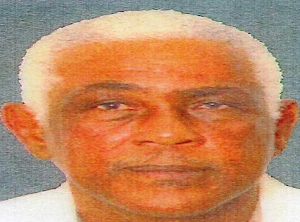
Search formissing fisherman
 (CNS) Updated Thursday: As hopes fade of finding missing sailor Mark Clarke (63) alive, the officer coordinating the extensive air, land and sea search for him has confirmed that the operation has now entered a search and recovery phase. Inspector Ian Yearwood, the RCIPS Marine Commander, said, “We know that Mr Clarke left to go fishing on his own on Monday morning around 7am and it wasn’t unusual for him to spend a few days at sea. It’s now been two days since his sailboat was found on the reef and despite a widespread air, land and sea search no trace of Mr Clarke has been found. We spoke with his family last night and advised them that we believed it was now extremely unlikely that he would be found alive.
(CNS) Updated Thursday: As hopes fade of finding missing sailor Mark Clarke (63) alive, the officer coordinating the extensive air, land and sea search for him has confirmed that the operation has now entered a search and recovery phase. Inspector Ian Yearwood, the RCIPS Marine Commander, said, “We know that Mr Clarke left to go fishing on his own on Monday morning around 7am and it wasn’t unusual for him to spend a few days at sea. It’s now been two days since his sailboat was found on the reef and despite a widespread air, land and sea search no trace of Mr Clarke has been found. We spoke with his family last night and advised them that we believed it was now extremely unlikely that he would be found alive.
"As such, the police operation has now moved into a search and recovery phase. Our thoughts are with his family and friends at this time."
Yearwood added, “We would like to thank the members of the public who assisted us with the search which covered an area of 79 miles.”
The Joint Marine Unit, RCIPS Air Operations Unit, DOE, and a number of private boaters took part in the search for Clarke who is an Olympic Sailor and a former memebr of the RCIPS. Shoreline searches are taking place today from Kaibo towards Old Man Bay.
Anyone who saw Mr. Clarke or his sailboat between 7.00am on Monday and 10.00am on Tuesday is asked to contact Sergeant Richard Scott on 325 8092.
Clarke's unmanned sailboat "Badger” was found lodged on the reef Tuesday morning, 22 October. Police said they received a report that the 25’ sailboat was stranded just east of the Cayman Kai channel. When the unit got to the boat they found that no-one was on board. Enquiries with Clarke's friends and family confirmed that he left from Rackley’s Canal in North Sound to go fishing around 7am Monday but he has not been in contact with them since.
T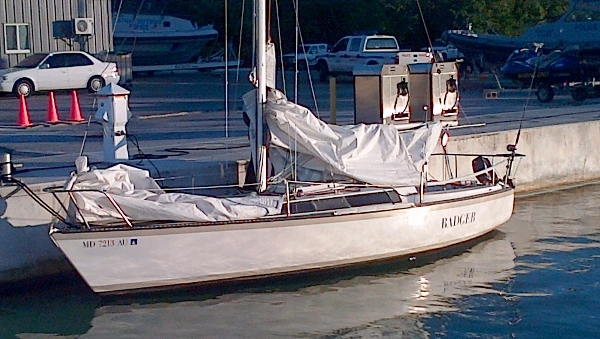 he search resumed at 8.30am Wednesday and throughout the day air, sea and shoreline searches will continued by the Joint Marine Unit, RCIPS Air Operations Unit , uniform officers, members of the Special Constabulary, the Department of the Environment, and one private boat owner volunteered to assist.
he search resumed at 8.30am Wednesday and throughout the day air, sea and shoreline searches will continued by the Joint Marine Unit, RCIPS Air Operations Unit , uniform officers, members of the Special Constabulary, the Department of the Environment, and one private boat owner volunteered to assist.
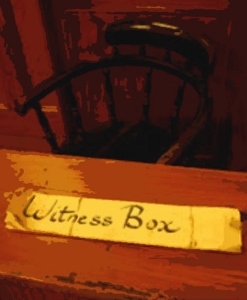
Witness seeks help for new life
 (CNS): A 49-year-old man who was shot while he was a protected witness in a murder trial says that he has been abandoned by the authorities, despite assisting them to put away a man who was considered a leading player in the criminal underworld. The former witness is now looking for a lawyer willing to help him file suit against government in an effort to try and lead a new life, as he said the police are simply not able to protect those who do the right thing. With no formal witness protection scheme in Cayman and a law that has languished for several years without implementation, the issue remains a major problem for law enforcement.
(CNS): A 49-year-old man who was shot while he was a protected witness in a murder trial says that he has been abandoned by the authorities, despite assisting them to put away a man who was considered a leading player in the criminal underworld. The former witness is now looking for a lawyer willing to help him file suit against government in an effort to try and lead a new life, as he said the police are simply not able to protect those who do the right thing. With no formal witness protection scheme in Cayman and a law that has languished for several years without implementation, the issue remains a major problem for law enforcement.
However, the PPM government has promised to review and implement the justice protection law to create a formal protocol for dealing with sensitive witnesses. With another spike in violent gun-related crime, the matter of witness protection and the complexities associated with it in a small jurisdiction have returned to the top of the authorities’ agenda. During the recent budget debate the premier pointed to plans to review and then implement the relevant law, which would create a formal scheme and programme to deal with witnesses who are at risk.
While government has invested millions of dollars in new crime fighting and evidence technology, cases continue to depend on eye witness testimony. But witnesses remain reluctant to come forward as a result of reprisals and the widespread perception, rightly or wrongly, in the community that people who talk to the police put their lives on the line. As police do their best to encourage witnesses to come forward, the experiences of many who do are rarely pleasant.
Although police management refused to comment on any specific witness case, past or present, a spokesperson confirmed that while the justice protection law has not yet been implemented, the RCIPS currently follows the protocols set out in the draft legislation, which is a public document. This means that witnesses who go into a protection programme must leave the island for good, never to return, and to cut ties with friends and family in Cayman that are not on the programme. Those who break the strict conditions are removed from the protection programme.
However, Fernando Martin, who has decided to break his silence about his treatment, said he was first persuaded to give evidence in the case against two men for the fatal shooting of Joe Williams in 2003 but there was no system in place to send witnesses overseas.
As a result he remained in Cayman in the lead up to the trial and he was re-housed at the Cayman Islander Hotel, as it was known then. But before he made it to the witness box, the protection he was promised failed and he became a victim. Martin received multiple gunshot wounds at the hotel on the night of 17 August when he opened his hotel room door to a gunman.
Despite the injuries, he survived and still took to the witness box for the trial, in which the men were ultimately acquitted.
Following that murdertrial, Martin then agreed to give evidence against the man he said had tried to kill him. Sheldon Brown was one of the RCIPS’ most wanted suspects and officers were keen for Martin to help them send him to jail. As a result, Martin was kept on the witness protection programme, such as it was at the time, which boiled down to government merely paying Martin’s rent and a subsistence allowance.
Brown was ultimately found guilty, and despite his continued denial that he was the gunman, he was convicted and jailed for 22 years in 2006. Thereafter, the police continued to pay for Martin to be housed locally in what was supposed to be in a safe location.
However, with a change in policy in 2010, Martin was sent overseas to Cuba. Martin claims that the local authorities did not deal with the Cuban authorities to enable him to lawfully stay there or work so he was forced to return to address his immigration status, making a further mockery of the protection he said he was meant to receive. Then at some point, he said, the RCIPS pulled the financing for his protection altogether and left him to his fate.
“They told me they were proud of me for coming forward and going through the trials and doing what I did but then they just left me out to hang,” he said. “They don’t care they can’t protect me and I have nowhere to turn.”
Increasingly suffering from the impact of his injuries but unable to find work, not least, he said, because employers have told him he is too much of a liability and an unwanted target on their premises, he is also in need of an operation to help him walk.
Given the various inconsistency in his treatment, Martin believes that now he has been abandoned, if the authorities won’t reconsider relocating him overseas, the only remaining course of redress for him will be through a successful law suit, but he has no money to pay up front legal fees and is hoping a human rights legal expert will consider helping him make a claim.
One local legal defence attorney told CNS that, depending on the circumstances of his overall treatment and the paper trail and evidence the fact that he was shot while in the protection of the authorities is an indication of negligence and liability.
Martin said he believes that the local authorities are not able to protect people locally and that he should be relocated because, in the end, he can only be sure he will be safe overseas. He said he wants to permanently relocate and has somewhere to go but he needs financial assistance to do that and help with medical expenses to deal with his injuries.
While the police have to be very wary when it comes to giving financial assistance to witnesses, as it can be seen as an inducement and undermine cases in court, it is normal for public authorities to assist with the cost of witness relocation. At present, although the police refuse to confirm who is currently under a witness protection programme, CNS is aware of several critical witnesses who are being supported financially for their assistance in murder cases.
For a number of reasons it appears that Martin has been abandoned, and whatever the truth of those reasons, there is no denying that he was instrumental in securing a major conviction. Furthermore, his case demonstrates the inconsistencies surrounding the treatment of witnesses. It also serves to remind government of the need to address how those who put their own lives on the line to help the authorities remove the most dangerous criminals from the streets are treated, regardless of who those individuals are or what their backgrounds may have been.
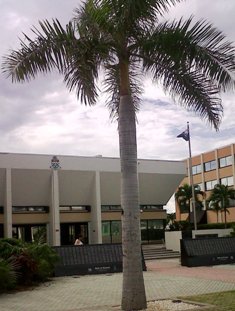
3 out of 4 guilty in robbery
 (CNS) Full report: A visiting judge found three out of four accused men guilty as he delivered his verdict Wednesday afternoon in the case of the WestStar TV offices robbery in May 2012, which he heard without a jury. Justice Alistair Malcolm acquitted a fourth man. Finding David Tamassa and Andre Burton guilty of robbery and possession of an imitation firearm, the judge also said that Ryan Edwards was guilty of aiding and abetting the robbery because he supplied the getaway car. George Mignot was acquitted by the judge on all charges, though he did not walk free because he had been previously convicted, along with the same men with whom he shared the dock in this case, for the CNB robbery, which occurred a month after the WestStar hold-up. He remains on remand.
(CNS) Full report: A visiting judge found three out of four accused men guilty as he delivered his verdict Wednesday afternoon in the case of the WestStar TV offices robbery in May 2012, which he heard without a jury. Justice Alistair Malcolm acquitted a fourth man. Finding David Tamassa and Andre Burton guilty of robbery and possession of an imitation firearm, the judge also said that Ryan Edwards was guilty of aiding and abetting the robbery because he supplied the getaway car. George Mignot was acquitted by the judge on all charges, though he did not walk free because he had been previously convicted, along with the same men with whom he shared the dock in this case, for the CNB robbery, which occurred a month after the WestStar hold-up. He remains on remand.
Local attorney Nick Hoffman representing Mignot had argued that his client couldn’t have been involved in the robbery because the cell site evidence was inconsistent with the account given by the crown's key witness. Marlon Dillon had told the court that Mignot was travelling with him along with Burton and Tamassa to the robbery but cell site results shows Mignot's cellphone was locked to a different location.The judge told the court that he could not be sure of the alleged involvement of Mignot. Due to the lack of evidence he was unable to convict the defendant on the charges against him.
Despite the multiple inconsistencies in Dillon's testimony, the judge was convinced that Tamassa was the organizer of the heist. Dillon also gave evidence that he learned about the robbery on the day it was executed when he returned from a trip to Jamaica. He told the court that he had seen missed calls from Tamassa and was asked to call him back urgently. When reviewing the call history, there was no evidence of any calls being made to Dillon's phone that morning. The judge said that he believed Dillon could not have known where Tamassa and Burton were that day unless he was with them as suggested.
The court heard Justice Malcolm say that he has taken into account that "a lie constantly told does not become the truth" but that he was satisfied with the evidence that Ryan Edwards had assisted in the robbery by providing the Mitsubishi RVR used as a getaway vehicle.
The judge accepted the evidence by the previous owner of the vehicle who had said that a Jamaican man who owns a mobile car wash van had bought the vehicle from him around 3 months before the robbery had taken place.
Although Edwards had already made confessions to being involved in the crime he claims that his three co-defendants were not his accomplices. The Jamaican national said in his police statements that he and Dillon were accompanied by two other Jamaican men who had escaped by canoe after the robbery. But the judge took into account that witnesses had described the robbers to have Caymanian accent and found Edwards guilty.
The three men are scheduled to be sentenced for the Cayman National Bank robbery on Friday along with their co-defendant Rennie Cole.
Check back to CNS later for a full report.

UK workers now need official police clearance
(CNS): From the start of next year, affidavits will no longer be accepted from United Kingdom citizens in lieu of police clearance certificates as a result of the new comprehensive records system in Britain, which has speeded up the police clearance certificates process. The Association of Chief Police Officers, the UK’s Criminal Records Office, coordinates and manages all such information and changes have improved links between criminal records and biometric information databases. This updated process allows applicants to obtain a certificate within two weeks or even two days for a premium service, compared to more than three months in the past.
The new certificates are designed with security technology and they will feature a photograph of the applicant, unique reference and unique serial numbers and other features.
For many years now the Cayman Island’s Department of Immigration accepted notarized ‘Affidavits of Character’, which simply attested that applicants had no criminal convictions. Although not an ideal arrangement it was introduced because it took three months or more to get a formal police clearance.
“The change from our perspective is necessary to ensure consistency and to improve our ability to confirm the character of the individuals who wish to enter, work and reside in our Islands” said Chief Immigration Officer Linda Evans.
Anyone interested in accessing this service should visit www.acro.police.uk.
Missing wanted man may be in Jamaica
(CNS): Following the disappearance of a West Bay man who is wanted by the police but who dived into stormy seas on 1 October to evade capture the RCIPS has stated that it now thinks he could be in Jamaica. A police spokesperson said Wednesday that Anthony Smith (31) who has not been seen since diving into the sea near West Bay public beach as he was being chased by officers may have managed to get off the island. “The RCIPS has received credible information that Mr Smith is off island and has been in Jamaica since two days after he was first reported missing. This information is being followed up on, and once confirmed a further update will be provided,” the spokesperson added.
There had been concerns for Smith’s welfare as the sea was rough and currents strong when he jumped in.
Despite an extensive search that night and for several days after however, there was no sign of the man. However, if the information given to police proves to be correct the man who is wanted by the courts for failing to appear in on-going criminal cases and by the police in relation to their enquiries must’ve managed to get out of the ocean without being spotted by the search team and hide until he was able to make his way to the neighbouring island.

Cops seize 150lbs of ganja in West Bay
(CNS):The RCIPS has made another major ganja haul following an operation in West Bay. In the wake of several significant seizures and discoveries the police announced the recovery of 150lbs of the drug and the arrest of three men. Police said that at about 5.30am yesterday, (Tuesday 22 October), officersfrom the Drug and Serious Crime Task Force, Operational Support Unit, K-9 and Uniform Support Group searched a number of homes in the Turtle Crescent area of West Bay. As a result of the operation 150lbs of ganja was seized and three men, aged 26, 27 and 52 years of age were all arrested on suspicion of possession of controlled drugs with intent to supply. The suspects remain in police custody while enquiries continue.

CUC picks 2 US firms for solar-wind energy supply
 (CNS Business): In August this year Caribbean Utilities Company, Ltd (CUC) invited renewable energy experts to submit expressions of Interest and preliminary proposals for the financing, construction, ownership and operation of renewable energy generation facilities, and the local power provider has chosen two US-based firms to provide wind and solar power to Grand Cayman. CUC said that, subject to approval by the Electricity Regulatory Authority of the final negotiated power purchase agreements, the company has chosen New Generation Power (NGP), who proposed to provide 3 megawatts of wind power and 5 megawatts solar, and Electric Power LLC (IEP), who plan to provide an additional 5megawatts of solar power. Read more on CNS Business
(CNS Business): In August this year Caribbean Utilities Company, Ltd (CUC) invited renewable energy experts to submit expressions of Interest and preliminary proposals for the financing, construction, ownership and operation of renewable energy generation facilities, and the local power provider has chosen two US-based firms to provide wind and solar power to Grand Cayman. CUC said that, subject to approval by the Electricity Regulatory Authority of the final negotiated power purchase agreements, the company has chosen New Generation Power (NGP), who proposed to provide 3 megawatts of wind power and 5 megawatts solar, and Electric Power LLC (IEP), who plan to provide an additional 5megawatts of solar power. Read more on CNS Business

Who’s guarding the gate?
I have read with interest the dialogue now taking place in the Legislative Assembly in relation to the current crime wave. I too endorse the calls for better policing and was happy to hear thepremier confirm his commitment to ensuring policies and resources aimed at crime reduction. Nonetheless, all of this talk took me back to only a couple of years ago (2011) when we were faced with a similar spate of retaliatory gang-related shootings (as they were then described). Many of you may remember a similar wave that took place even before then in 2005.
Both times we heard the cries; but then the shootings quelled and so too did the impassioned calls for better policing and strong and effective crime reduction policies. While there is much to be said about addressing the current levels of crime in general, my current focus does not allow for that discussion (it will follow). My focus today deals primarily with the issue of gun-related crime.
I have watched intently as Commissioner Bains has taken licks (as he should) for what we all perceive as ineffective policing. That is, the failure of his officers to prevent, detect and successfully investigate gun-related crimes and apprehend the perpetrators to our satisfaction. But there is more than enough blame to share, so I must wonder why he sits alone in the hot seat.
The Customs Department has for too long escaped its share of the criticisms laid at the feet of the RCIPS. Customs’ most recent controversy is levelled at the hiring and qualifications of a suitable person to take on the position of collector. And I concede that as the highest revenue earner for the Cayman Islands Government, the department requires an educated and insightful leader (and person of integrity) at its helm.
However, revenue collection is NOT the sole (or most important) function of that department. As in all other jurisdictions, customs has a very significant law enforcement mandate to fill. It is charged with protecting our borders and ensuring that contraband such as guns and drugs don’t make it through to our communities … to the hands of unsavoury characters and our children. To the best of my knowledge no firearms are produced in the Cayman Islands and there are strict prohibitions surrounding their legal importation.
Therefore, the fact that we are seeing so much gun-related crime should tell us that there is a significant failing from this department, which precedes the blame to be held by the RCIPS. Ask yourselves, when was the last time you heard of a customs seizure of guns? Long before the mandate of the police to investigate a shooting kicks in, a crime relating to that particular firearm has already been committed. It’s called smuggling.
Why is no-one talking about this – the illegal importation of guns? Why aren’t we asking how they’re getting in, how many are here and who’s bringing them? Why aren’t we demanding arrests and holding customs to the same yard-stick as RCIPS? We chastise Bains for not doing enough to get guns and those who use them off of our streets, yet hold no one accountable for not keeping them from passing our borders in the first place.
For as far back as I can recall, customs had been hailed for the amount of duties it collected; but this has been part of the problem. As long as the additions to the coffers are bountiful we turn a blind eye to the fact that not enough emphasis has placed on its law enforcement function. Now with the search for a new collector in the spotlight, I believe that it is important that we all understand what we are search for.
It is clear that neither our MLAs nor the deputy governor thoroughly understands this. I listen to the calls on the one hand for a Caymanian and on the other for a master’s degree holder, neither of which properly articulates what should be required for the person collecting our money and guarding our gates. More important than having a Caymanian is having someone who understands the function and the mission of the department. More important than the need for a superfluous masters degree is the need for a LEADER, someone that understands the important balance to be achieved between revenue collection and border security and protection.
Whilst the requirement of a graduate degree is a reasonable expectation of the potential post-holder, for a position that emphases border security the need for law enforcement experience is equally as important. I dare say a master’s degree is not! Truth be known, most of CIG’s department heads would be without a job if that requirement were imposed across the board, which does make one wonder why it’s there.
If we are going to raise the bar (which we should), let it be raised to a reasonable and practical height. How about we not settle for just having a title-holder and demand some substance of the person charged with the guardianship of our borders. I’m sure Commissioner Bains would be all too happy to share his licks with anyone who’s adequately qualified to take them.